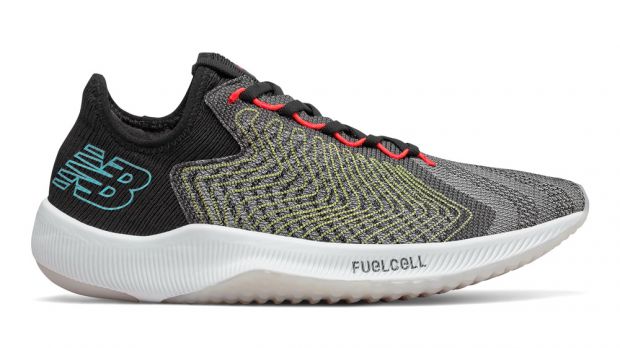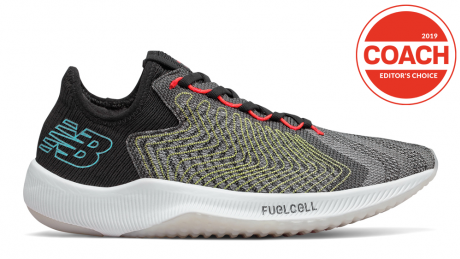You can trust Coach
When New Balance announced its four-strong line-up of FuelCell running shoes most of the attention was directed towards the 5280. The innovative shoe pairs a carbon plate with the bouncy but lightweight FuelCell foam to create a dedicated racing shoe designed to set records over one mile.
However, there aren’t a lot of amateur runners out there obsessed with running one-mile races, and having spent a couple of weeks running in the 5280’s stablemate, the FuelCell Rebel, I reckon New Balance pointed the spotlight in the wrong place. The Rebel is a sensational running shoe that runners can use for both training and racing.
The Rebel costs £120, which isn’t cheap by any means but is more affordable than many flagship shoes, which tend to cost upwards of £150.
The midsole is made of New Balance’s FuelCell foam, which is lightweight and provides more rebound than any other foam used in the company’s running shoes. While it doesn’t have the carbon plate used in the 5280, the Rebel – according to New Balance – is the company’s attempt to get some of the innovations of the 5280 into a lightweight, speedy daily trainer.
The result is a shoe that weighs just 208g despite having a comfortable stack of cushioning on the bottom, a combination designed to excel on tempo and hard long training runs in particular, while also remaining a great racing option.

I’ve tried the Rebel for a variety of runs and it’s impressed me every time. The FuelCell foam is soft and comfortable, but the bounce in the shoe means it’s easy to up the pace. When using the Rebel I almost always found I was running a little faster than I thought I was when I checked my watch.
On the first weekend I wore them, I took them out for an 8km race on the Saturday and a 20km long run on the Sunday. Following that, I used the shoe for a track workout and several easy runs. The only faults I’d pick with it are that it lacks a little pace when it comes to running short reps on the track and it isn’t as soft as many would like for really easy runs.
Sign up for workout ideas, training advice, reviews of the latest gear and more.
For everything else, the Rebel is brilliant and it shone on the 20km run in particular. The smooth, responsive ride makes holding a fast pace feel comfortable. It’s similar to the feel of Saucony’s Everun and Adidas’s Boost foams, but much lighter, making the Rebel a better racing option as a result.
See related
The shoe that the Rebel really reminded me of was the Nike Pegasus Turbo, which was my favourite new release of last year. Both make running quickly feel comfortable, even if they’re not designed as out-and-out speedsters, and both can be used for all parts of your running. One edge the Rebel has, however, is that it’s significantly cheaper than the Pegasus Turbo, which costs £159.95.
There’s a flange on the outer side of the Rebel to add stability, especially when running hard. It looks a little odd but it wasn’t something I noticed when running at all. Maybe it was helping, maybe it was doing nothing at all, but it wasn’t annoying at least.
The Rebel came up a little small for me and although the upper might stretch a little with use I’d say going half a size up would be worthwhile. The mesh upper holds your foot in place securely and comfortably, and I didn’t find the shoe got hot during long runs.
All running shoe brands are doing their best at the moment to convince you of the merits of their proprietary midsole foams, but New Balance’s FuelCell lives up to the hype, and the Rebel offers a responsive but comfortable ride. It’s at its best over tempo and long runs, and it’s a great option for races of 5K and up, especially half marathon and marathon distances.
Buy men’s from New Balance | Buy women’s from New Balance | £120

Nick Harris-Fry is a journalist who has been covering health and fitness since 2015. Nick is an avid runner, covering 70-110km a week, which gives him ample opportunity to test a wide range of running shoes and running gear. He is also the chief tester for fitness trackers and running watches, treadmills and exercise bikes, and workout headphones.

